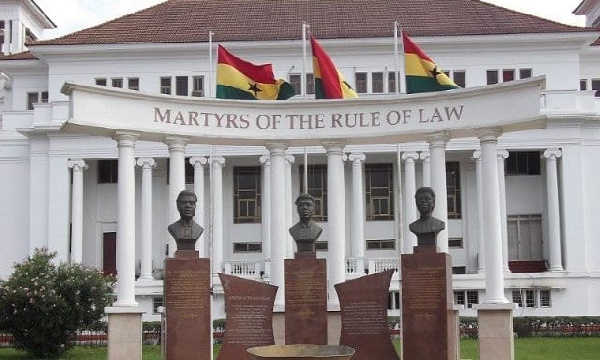The Ghana Voice,
Accra, Ghana

Kwame Koduah: 43 Years On: Remembering Ghana's Martyred Judges and the Enduring Lessons for Our Legal System
The Ghana Voice 30-06-2025Kwame Koduah: 43 Years
On: Remembering Ghana's Martyred Judges and the Enduring Lessons for Our Legal
System
Today, we pause to
remember a dark chapter in Ghana's history. On this day, 43 years ago, three
High Court Judges—Justice Fred Poku Sarkodee, Justice Cecilia Koranteng-Addow,
and Justice Kwadwo Agyei Agyepong, along with a retired military officer, Major
Sam Acquah, were brutally murdered. Their crime? Upholding the rule of law and
dispensing justice without fear or favour.
Their sacrifice was not
in vain; it became a catalyst for the return to constitutional democracy and a
stark reminder of what is at stake when the independence of the judiciary is
threatened.
As we commemorate this
solemn anniversary, it is impossible to ignore the contemporary currents
testing our legal and constitutional foundations. The ongoing impeachment
proceedings against our Chief Justice, shadowed by claims of procedural
unfairness, compel us to reflect.
Without drawing a false
equivalence between a brutal act of terror and a constitutional process, the
confluence of these events calls for deep introspection. From the crucible of
our history, here are three enduring lessons that must guide our collective
actions:
1. The Rule of Law is Not
a Slogan; It is Our Shield.
The 1982 murders were a
direct assault on the principle that society should be governed by law, not by
the arbitrary will of those in power. Today, this lesson reminds us that every
constitutional process, especially one concerning the highest judicial office,
must be a masterclass in the rule of law. It demands transparent, predictable,
and fair procedures. Anything less erodes the very foundation that Justices
Sarkodee, Koranteng-Addow, and Agyepong died to protect.
2. Judicial Independence
is Fragile and Non-Negotiable.
The judges were martyred
for their judicial decisions in the ultimate act of intimidation, designed to
cower the bench into submission. While the threats today are different, the
assault on judicial autonomy remains constant. True judicial independence is
not merely the absence of physical coercion; it is the freedom from political
pressure, executive overreach, and any process that could be perceived as a
tool for reprisal. Today, this assault takes a more insidious form, including
the unguarded and cynical labelling of judges as a ‘unanimous FC’ by those who
should be its staunchest defenders. This is a dangerous tactic that replaces
professional critique with political attack, implying collusion rather than
sound legal reasoning. Such behaviour not only chills judicial courage but also
fundamentally erodes the public’s perception of fairness—a perception as vital
as fairness itself, and one that we must fiercely protect.
3. Procedural Fairness
(Due Process) is the Bedrock of Justice.
The ultimate injustice is
not just a wrong outcome, but one that is reached through a flawed and unfair
process. The 1982 tragedy represents the total annihilation of due process.
Today’s challenges remind us that the right to a fair hearing and transparent
procedure is sacrosanct for every citizen, and arguably even more critical when
applied to the leadership of the institution tasked with guaranteeing it for
all. If the head is not afforded procedural sanctity, what hope is there for
the body and the citizenry?
A Call to Conscience
As legal professionals,
academics, and citizens of Ghana, our remembrance of these martyrs must be
active, not passive. It must translate into a renewed commitment to demanding
and upholding the highest standards of constitutionalism.
Let their sacrifice be a
constant, burning reminder of the high price of vigilance and the eternal value
of justice, fairly and independently administered for all.
Â
Source: An Opinion by
Kwame Koduah Atuahene, a lawyer and legal academic.
